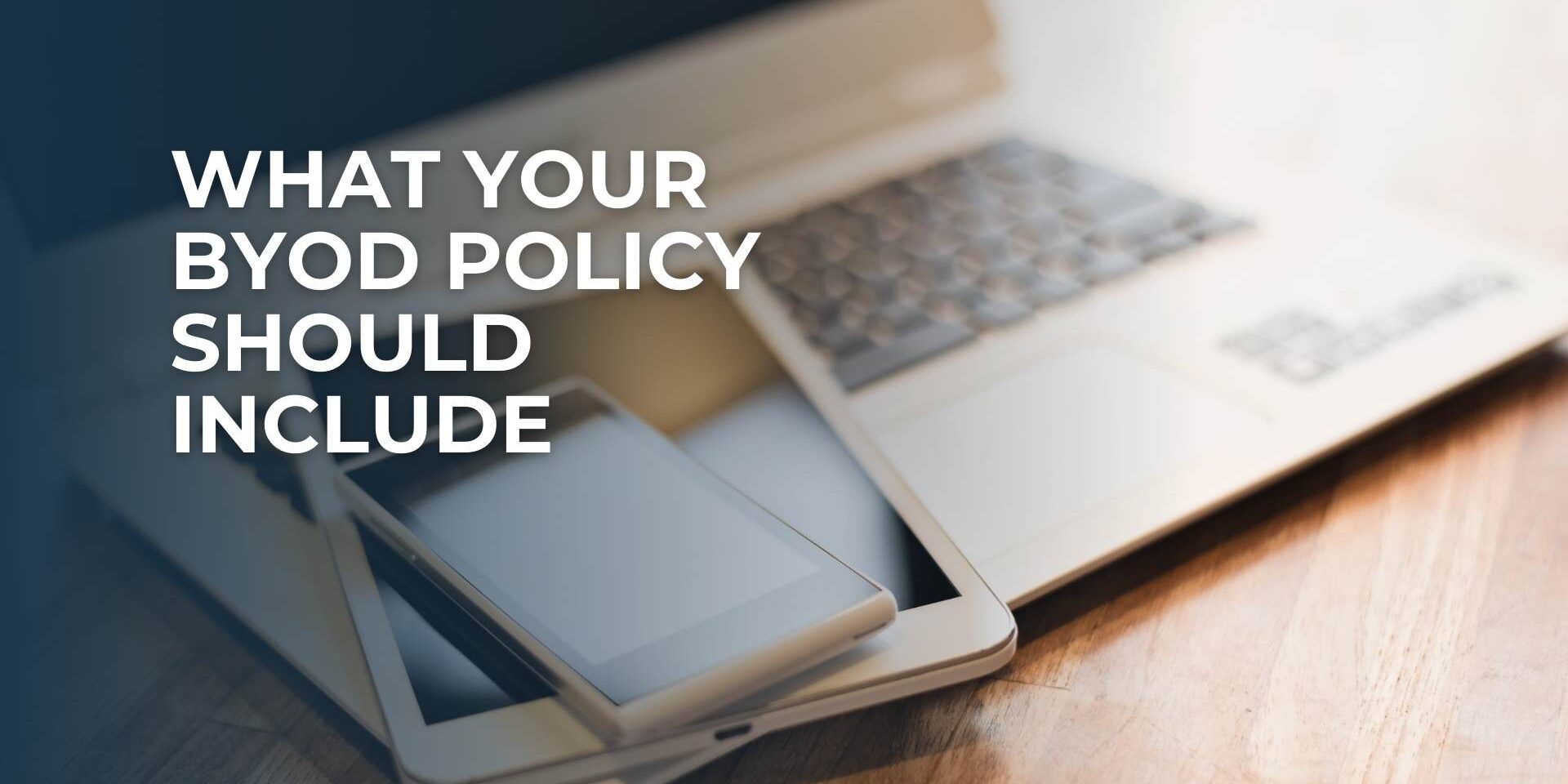
5 Things Your BYOD Policy Should Include
It’s difficult to overstate the benefits of introducing a bring your own device (BYOD) policy into your business operations. In addition to making your workplace more flexible, BYOD reduces your overhead and increases employee engagement. But before you dive into the whirlwind of benefits, you need to address security concerns. Here are some key elements that your BYOD policy should include.
Ensure you can remotely delete data
An employee who seems amazing and infallible today could become a liability tomorrow. And there’s always a risk that someone will lose their device.
In addition to retaining the ability to remotely delete data, make sure that participating employees sign a contract to state that they’re aware of this ability. Remotely deleting data might sometimes require you to delete their personal files, too. Ensuring they’re aware of such terms can prevent disagreements in the future.
Maintain high levels of security
The more devices you introduce to your company, the more flexible your employees will be. At the same time, you’re giving cybercriminals more opportunities to breach your defenses and steal your information.
Most companies have a formal BYOD policy. If you don’t have one, your company needs to develop a policy that stipulates the type of security features your employees will use. Additionally, they need to agree to install software updates as soon as they’re released. Failing to install software updates results in vulnerabilities you can’t afford.
Specify the type of devices and platforms
Are you willing to allow all devices and platforms? Or would you rather tighten your security further by only allowing certain ones? There’s nothing wrong with allowing multiple platforms, but only do so if you’re confident that the software your organization uses will work across all of them. Additionally, you’ll need to make sure the devices your employees use can be updated to the latest operating system.
Failing to update to the latest operating system can result in security flaws. Usually, operating system updates are there to patch vulnerabilities that the manufacturer has become aware of. More than 4,100 publicly disclosed data breaches occurred in 2021, leaving approximately 22 billion records exposed. If you want to reduce the risk of contributing to such statistics, you need to ensure all devices benefit from updated software.
Maintain control of the device’s apps
If your employee is going to take their role seriously, they won’t download apps that pose security risks. As app markets such as Apple and Google Play are open to smaller developers, there’s a risk that their apps won’t meet your high standards. When they exist on devices alongside your data, this could result in security breaches.
Let your employees know that they should take a cautious approach to app downloads when they’re using their devices for work purposes. You should also make them aware that others may be able to install spyware on their phones if they leave them lying around.
Take a non-punitive approach to device losses
Accidents will always happen, so it’s not reasonable to expect that all your employees can avoid losing their devices altogether. As such, you need to let employees know that they won’t be penalized for losses if they report them promptly.
Try to designate someone that your employees can report to if they lose a device. In doing so, you may find that you’re made aware of a lost device rather than an employee keeping it a secret.
By taking a cautious approach to your BYOD policy, you can enjoy all the benefits that come with it. Just make sure you review your policies periodically, especially when data protection laws change in your industry.
Need some expert perspective? Get in touch!
Share the IT Brain Power
More from the BECA Blog



